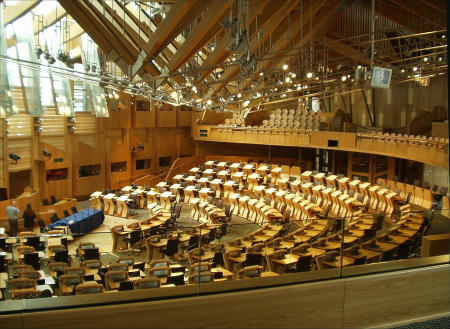CIH Scotland raises concerns about the Housing Bill

CIH Scotland has voiced concerns about the Housing Bill announced by the Scottish Government.
The Scottish Government invited landlords, tenants and stakeholders to share their views on proposals for rented sector reform ahead of the Housing Bill being introduced. The online questionnaire, which closed on 27 October, covered a range of issues including:
- Rent control in the private rented sector (PRS).
- Ending joint tenancies in the PRS.
- Greater flexibility for tenants to personalise homes in the PRS.
- Greater flexibility for tenants to keep pets in the PRS and social rented sector.
- Options for unclaimed tenancy deposits in the PRS.
- Greater protections for private and social housing tenants during the eviction process.
- Changes to pre-action requirements in the social housing sector to reflect the potential impact of domestic abuse.
Commenting on the consultation Ashley Campbell, policy and practice manager at CIH Scotland, said: “The rented sector is an essential part of our housing system and we want to make sure that tenants, no matter who they rent their home from, can expect a good quality, well managed home that provides value for the rent they pay.
“We absolutely support the Scottish Government’s aim to give tenants more flexibility to make their rented house a home. However, we have concerns about how some of the proposals will work in practice without greater resources available to help landlords comply and tenants to uphold these new rights.
“We are also concerned about some of the potential unintended consequences, particularly around the proposal to introduce a new system of rent control in the PRS. There is mounting evidence to suggest that the emergency rent cap brought in to protect tenants during the cost-of-living crisis is doing the exact opposite, with some rents increasing significantly between tenancies.”
She added: “A substantial change like rent control has the potential to reshape the housing sector – for better or worse. If introduced, it could help to suppress rents that are becoming unaffordable and shutting people out of the PRS. But if it is not well thought through and based on robust evidence, a new rent control system could encourage private landlords to increase rents when they may not have otherwise done so, or to leave the market putting existing tenants at risk of eviction and resulting in a loss of rented accommodation.
“We know that there are gaps in PRS data that would help to make informed decisions, this needs to be addressed if rent control is to be implemented successfully. We would also call on the Government to consider the impact of the existing rent caps and how any new system could be refined to better target particular affordability issues.”









